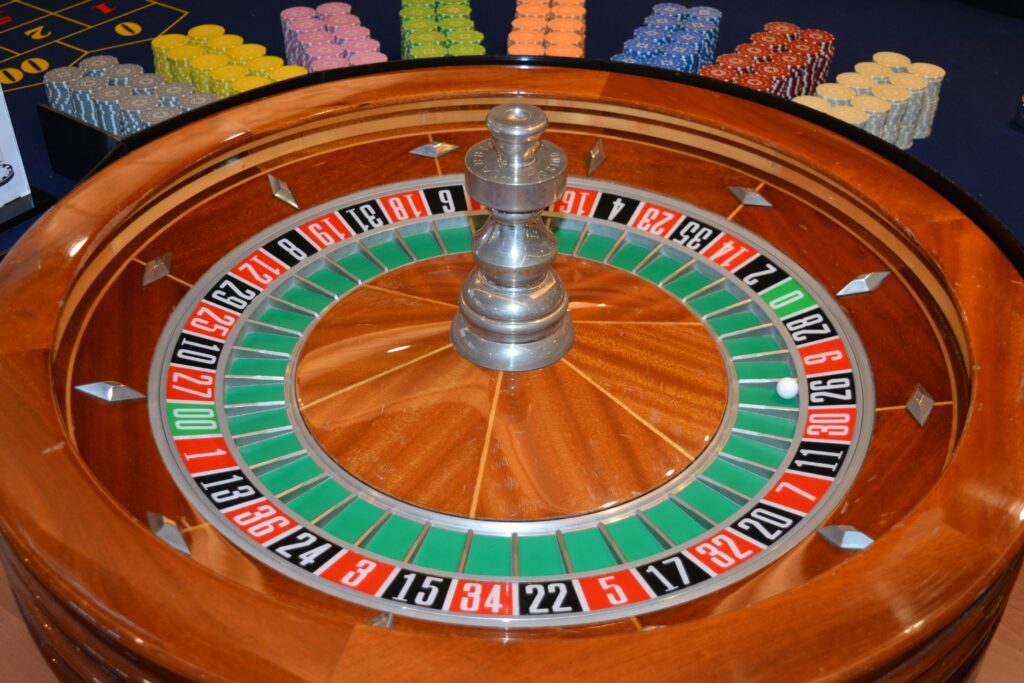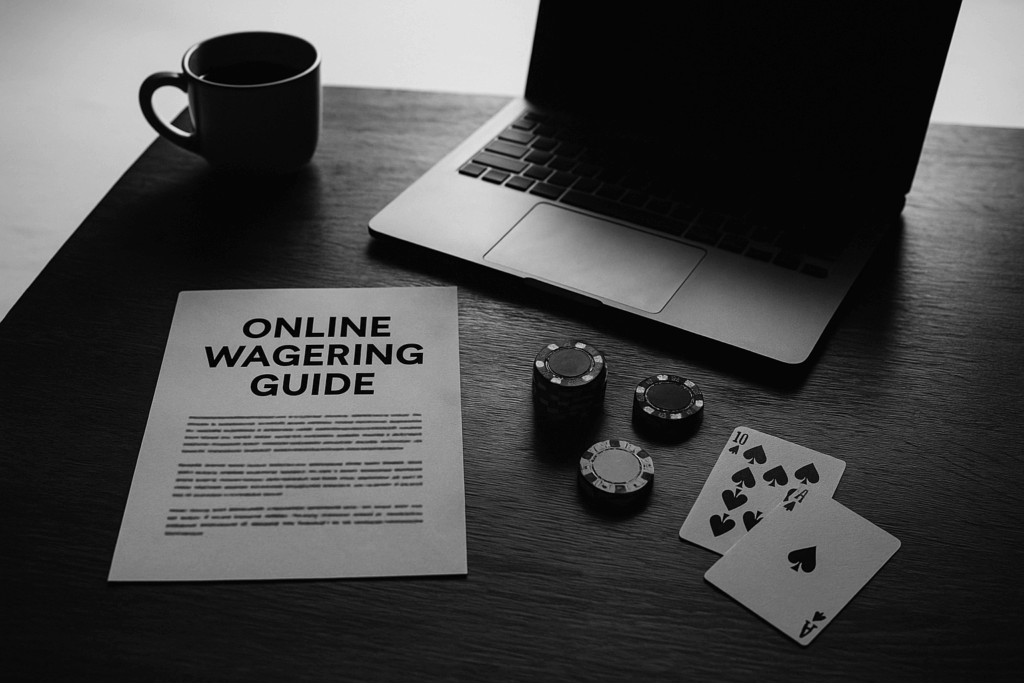Introduction: Betting Without Losing Yourself
Let’s be real—betting can hit all the right dopamine triggers. The rush of a win, the tension of a close call, the endless data to obsess over. For those who enjoy it, betting straddles the line between sport and strategy. But it’s not all clean edges and sharp plays. It can wear on you. It gets stressful—especially when the fun starts to feel like pressure.
That’s why balance isn’t optional—it’s essential. Chasing wins without a plan rarely ends well. Those highs are addictive, sure, but they’re unpredictable. What matters more than a hot streak is whether you can close the app and walk away. Whether you’re betting for the excitement or the edge, keeping your head is harder (and more valuable) than hitting your next parlay.
There’s a line—sometimes thin—between treating betting as a hobby and letting it tip into something else. Hobby-level means control, intention, and self-awareness. Harmful habits show up quietly: betting out of boredom, lying to people close to you, or feeling like you “need” the next wager to feel okay. Recognizing that shift early isn’t weakness—it’s how you stay in the game without losing yourself in it.
Set Clear Boundaries
Betting without boundaries is like lifting weights without form—something’s going to snap. Start with time. Just like gym sessions, betting works better with structure. Block out a set window, keep it focused, and step away when the clock’s done. No one sets personal bests from the couch at two in the morning.
Then there’s your bankroll. Treat it like a fuel tank. Set a limit before you even open the app—and stick to it. That line exists for a reason. Crossing it isn’t bold; it’s reckless. Once you’re at zero for the day, you’re out. No top-up, no just-this-once.
Lastly, protect your headspace. Emotions are the fastest way to burn a bankroll. If you’re tilted, distracted, or chasing the high of a win (or the sting of a loss), hit pause. This isn’t just about protecting your wallet. It’s about protecting your peace. Clear rules mean fewer regrets. The smart bettors? They build guardrails—and they keep them up.
Prioritize Physical and Mental Health
Betting may be a mental exercise, but maintaining physical and mental health is essential to showing up sharp, focused, and emotionally grounded. Without balance, even occasional wagers can start to take a toll.
Fuel Your Body and Mind
Taking care of your basic physical needs isn’t optional—it’s the foundation of a sharp betting mindset. Skipped meals, sleepless nights, or staying glued to a screen without breaks will catch up with you.
- Get enough sleep: Poor sleep reduces focus and increases impulsiveness.
- Eat real meals: Energy crashes from junk food or skipping meals can cloud your judgment.
- Stay active: Even a short walk can reset your perspective and reduce the stress that accumulates from betting sessions.
Watch for Hidden Stress
Betting doesn’t always feel stressful in the moment—but that tension can carry over into other parts of your life. A losing streak or constant decision-making pressure may show up in subtle ways.
- Mood swings you can’t explain
- Increased irritability or anxiety
- Difficulty focusing on work or relationships
If you start noticing these creeping in, it may not be about the bet—it could be about burnout.
Know When to Take a Break
Creating space is not a sign of weakness—it’s a survival tool for long-term balance.
- Take time off after emotional losses or big wins
- Pause if betting is affecting your health, mood, or priorities
- Schedule regular no-bet days to test your detachment and regain control
Balancing betting with real-life wellness keeps you grounded—and helps ensure you gamble with clarity, not compulsion.
Choose Tools That Keep You Smart, Not Addicted
The app store is packed with flashy betting tools, but a few cut through the noise. If you’re serious about staying sharp—not just lucky—you’ll want apps that give you control, not just picks.
Start with a bet tracker. Tools like Betstamp or Action Network let you log every wager, spot patterns, and see where you’re winning and losing. Reviewed data beats memory every time. Pair that with a bankroll manager like BettorEdge or Excel-based templates to keep your risk in check. If you’re not tracking what you spend and what you make, you’re just guessing.
Then there are responsible gambling features more of us should actually use: deposit limits, cool-off periods, and session reminders. Most betting platforms offer them, few bettors activate them. That’s a mistake. Used right, these guardrails safeguard your mindset—not just your wallet.
Bottom line: the right tech can make betting a smarter pursuit. Just remember, your tools work for you—not the other way around.
(For a full toolkit: Essential Apps and Tools for Smarter Betting)
Avoid Emotional Decision-Making
A few good wins can make you feel like a genius. A few losses can make you desperate. Neither mindset leads anywhere good. Overconfidence after a lucky run tempts you to bet bigger and looser, thinking you can’t miss. On the flip side, chasing losses puts you on a fast track to emotional burnout—and an empty account. Either way, emotions are calling the shots, not logic.
Smart bettors build a system and stick to it. That means having rules for when you bet, how much, and under what conditions. You review the stats, not your feelings. You trust the data instead of trying to outguess the outcome with your gut. Having a strategy doesn’t guarantee success, but it gives you structure—something to fall back on when things go sideways.
And here’s the hardest part: knowing when to stop. Not every bet needs revenge. Not every streak needs continuing. Sometimes, the win is walking away with your bankroll intact and your head clear. Discipline is underrated. It’s the edge that keeps your hobby from becoming a habit you can’t control.
Create a Support Network
It’s easy to spiral when your circle revolves around betting talk, hot picks, or last night’s bad beats. That’s why one of the most underrated strategies for staying balanced is having a life outside the odds. Surrounding yourself with non-bettors—friends, roommates, co-workers—keeps you in touch with conversations that aren’t about spreads or streaks. You’re reminded there’s more to life than your latest wager.
When it comes to talking about your betting habits, honesty matters. Not with everyone—but with someone. Whether it’s a partner, a close friend, or a mentor, being upfront helps deflate the pressure. If things ever get out of hand, someone will notice before it gets worse. On the flip side, being transparent during the good times keeps you humble.
Balance doesn’t mean isolation. Forums and discussion groups can be goldmines—if you’re selective. Skip the hype-fueled echo chambers. Look for communities grounded in strategy, discipline, and self-awareness. Spaces where people share what they’ve learned, not just what they’ve won. Betting can be social without being toxic. The key is staying rooted in reality, not swept up in the noise.
Keep Betting Just One Part of Life
Betting fits best when it stays in its lane. The moment it replaces your usual Saturday hike, your weekly hangouts, or chips away at your performance at work, it’s taking up too much space. This is where a lot of people slip—they let the highs and lows of betting bleed into the rest of their lives, and suddenly it’s the main focus, not a side interest.
The sharp ones? They compartmentalize. Betting happens on their own schedule, in set windows, with clear boundaries. They know when to log off and go back to being an employee, a partner, a friend. It’s not about pretending betting doesn’t matter—it’s about not letting it matter more than everything else.
And here’s the bottom line: betting might be something you do, but it shouldn’t be who you are. Don’t build your personality around wins, losses, or hot streaks. Keep your identity bigger than your bets. That’s how you keep perspective—and stay sharp over the long run.
Conclusion: Wager Hard, Live Well
Maintaining a balanced lifestyle as a bettor doesn’t mean you have to stop enjoying the game. It means treating betting as just one part of a rich, well-rounded life—never the center of it.
Keep Betting Enjoyable by Keeping Life Full
When your personal and professional life are strong, betting can remain what it should be: a hobby, not a hold.
- Prioritize relationships, hobbies, and real-world experiences
- Don’t use betting as escapism—it’s not a cure for boredom or stress
- Give as much energy to your downtime and growth as you do to wagers
It’s About Perspective, Not Just Payouts
Winnings can be exciting, but your mindset around betting matters just as much as your ROI.
- Track progress, not just profits
- Value smart decisions over lucky breaks
- Being consistent is more satisfying—and sustainable—than chasing hot streaks
Chase the Long Game, Not the Highs
Longevity wins in the end. Bettors who think long-term are less likely to burn out, make reckless choices, or lose sight of their goals.
- Avoid impulsive streak-chasing
- Stick to systems that work—not just today, but over time
- Measure success by how well you manage risk, not just reward
Betting doesn’t have to rule your life. When kept in check, it can be an engaging, analytical, and low-stress way to engage with something you enjoy. The key? Balance over buzz, and strategy over streaks.


 Lillian Wagneroler, an insightful author at oddsempirerush focuses on in-depth research and engaging storytelling. Her articles provide fresh perspectives on betting trends, helping readers connect with the latest developments in the industry.
Lillian Wagneroler, an insightful author at oddsempirerush focuses on in-depth research and engaging storytelling. Her articles provide fresh perspectives on betting trends, helping readers connect with the latest developments in the industry.

